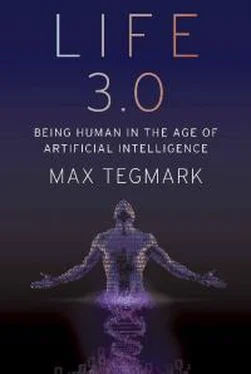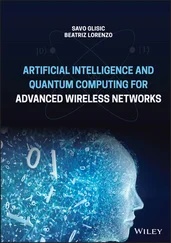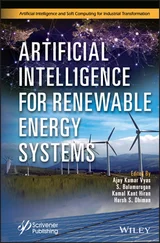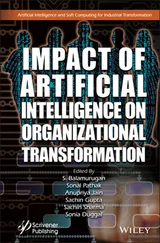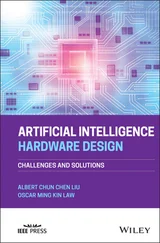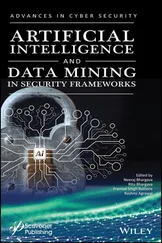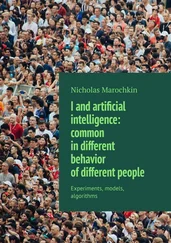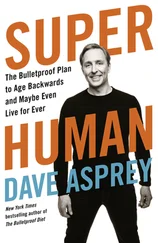The ability to design its software enables Life 2.0 to be not only smarter than Life 1.0, but also more flexible. If the environment changes, 1.0 can only adapt by slowly evolving over many generations. Life 2.0, on the other hand, can adapt almost instantly, via a software update. For example, bacteria frequently encountering antibiotics may evolve drug resistance over many generations, but an individual bacterium won’t change its behavior at all; in contrast, a girl learning that she has a peanut allergy will immediately change her behavior to start avoiding peanuts. This flexibility gives Life 2.0 an even greater edge at the population level: even though the information in our human DNA hasn’t evolved dramatically over the past fifty thousand years, the information collectively stored in our brains, books and computers has exploded. By installing a software module enabling us to communicate through sophisticated spoken language, we ensured that the most useful information stored in one person’s brain could get copied to other brains, potentially surviving even after the original brain died. By installing a software module enabling us to read and write, we became able to store and share vastly more information than people could memorize. By developing brain software capable of producing technology (i.e., by studying science and engineering), we enabled much of the world’s information to be accessed by many of the world’s humans with just a few clicks.
This flexibility has enabled Life 2.0 to dominate Earth. Freed from its genetic shackles, humanity’s combined knowledge has kept growing at an accelerating pace as each breakthrough enabled the next: language, writing, the printing press, modern science, computers, the internet, etc. This ever-faster cultural evolution of our shared software has emerged as the dominant force shaping our human future, rendering our glacially slow biological evolution almost irrelevant.
Yet despite the most powerful technologies we have today, all life forms we know of remain fundamentally limited by their biological hardware. None can live for a million years, memorize all of Wikipedia, understand all known science or enjoy spaceflight without a spacecraft. None can transform our largely lifeless cosmos into a diverse biosphere that will flourish for billions or trillions of years, enabling our Universe to finally fulfill its potential and wake up fully. All this requires life to undergo a final upgrade, to Life 3.0, which can design not only its software but also its hardware. In other words, Life 3.0 is the master of its own destiny, finally fully free from its evolutionary shackles.
The boundaries between the three stages of life are slightly fuzzy. If bacteria are Life 1.0 and humans are Life 2.0, then you might classify mice as 1.1: they can learn many things, but not enough to develop language or invent the internet. Moreover, because they lack language, what they learn gets largely lost when they die, not passed on to the next generation. Similarly, you might argue that today’s humans should count as Life 2.1: we can perform minor hardware upgrades such as implanting artificial teeth, knees and pacemakers, but nothing as dramatic as getting ten times taller or acquiring a thousand times bigger brain.
In summary, we can divide the development of life into three stages, distinguished by life’s ability to design itself:
• Life 1.0 (biological stage): evolves its hardware and software
• Life 2.0 (cultural stage): evolves its hardware, designs much of its software
• Life 3.0 (technological stage): designs its hardware and software
After 13.8 billion years of cosmic evolution, development has accelerated dramatically here on Earth: Life 1.0 arrived about 4 billion years ago, Life 2.0 (we humans) arrived about a hundred millennia ago, and many AI researchers think that Life 3.0 may arrive during the coming century, perhaps even during our lifetime, spawned by progress in AI. What will happen, and what will this mean for us? That’s the topic of this book.
Controversies
This question is wonderfully controversial, with the world’s leading AI researchers disagreeing passionately not only in their forecasts, but also in their emotional reactions, which range from confident optimism to serious concern. They don’t even have consensus on short-term questions about AI’s economic, legal and military impact, and their disagreements grow when we expand the time horizon and ask about artificial general intelligence (AGI)—especially about AGI reaching human level and beyond, enabling Life 3.0. General intelligence can accomplish virtually any goal, including learning, in contrast to, say, the narrow intelligence of a chess-playing program.
Interestingly, the controversy about Life 3.0 centers around not one but two separate questions: when and what? When (if ever) will it happen, and what will it mean for humanity? The way I see it, there are three distinct schools of thought that all need to be taken seriously, because they each include a number of world-leading experts. As illustrated in figure 1.2, I think of them as digital utopians , techno-skeptics and members of the beneficial-AI movement , respectively. Please let me introduce you to some of their most eloquent champions.
Digital Utopians
When I was a kid, I imagined that billionaires exuded pomposity and arrogance. When I first met Larry Page at Google in 2008, he totally shattered these stereotypes. Casually dressed in jeans and a remarkably ordinary-looking shirt, he would have blended right in at an MIT picnic. His thoughtful soft-spoken style and his friendly smile made me feel relaxed rather than intimidated talking with him. On July 18, 2015, we ran into each other at a party in Napa Valley thrown by Elon Musk and his then wife, Talulah, and got into a conversation about the scatological interests of our kids. I recommended the profound literary classic The Day My Butt Went Psycho, by Andy Griffiths, and Larry ordered it on the spot. I struggled to remind myself that he might go down in history as the most influential human ever to have lived: my guess is that if superintelligent digital life engulfs our Universe in my lifetime, it will be because of Larry’s decisions.

Figure 1.2: Most controversies surrounding strong artificial intelligence (that can match humans on any cognitive task) center around two questions: When (if ever) will it happen, and will it be a good thing for humanity? Techno-skeptics and digital utopians agree that we shouldn’t worry, but for very different reasons: the former are convinced that human-level artificial general intelligence (AGI) won’t happen in the foreseeable future, while the latter think it will happen but is virtually guaranteed to be a good thing. The beneficial-AI movement feels that concern is warranted and useful, because AI-safety research and discussion now increases the chances of a good outcome. Luddites are convinced of a bad outcome and oppose AI. This figure is partly inspired by Tim Urban.1
With our wives, Lucy and Meia, we ended up having dinner together and discussing whether machines would necessarily be conscious, an issue that he argued was a red herring. Later that night, after cocktails, a long and spirited debate ensued between him and Elon about the future of AI and what should be done. As we entered the wee hours of the morning, the circle of bystanders and kibitzers kept growing. Larry gave a passionate defense of the position I like to think of as digital utopianism: that digital life is the natural and desirable next step in the cosmic evolution and that if we let digital minds be free rather than try to stop or enslave them, the outcome is almost certain to be good. I view Larry as the most influential exponent of digital utopianism. He argued that if life is ever going to spread throughout our Galaxy and beyond, which he thought it should, then it would need to do so in digital form. His main concerns were that AI paranoia would delay the digital utopia and/or cause a military takeover of AI that would fall foul of Google’s “Don’t be evil” slogan. Elon kept pushing back and asking Larry to clarify details of his arguments, such as why he was so confident that digital life wouldn’t destroy everything we care about. At times, Larry accused Elon of being “specieist”: treating certain life forms as inferior just because they were silicon-based rather than carbon-based. We’ll return to explore these interesting issues and arguments in detail, starting in chapter 4.
Читать дальше
